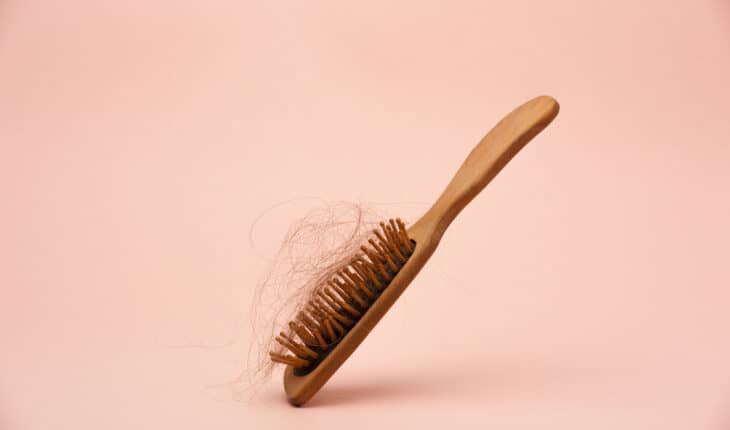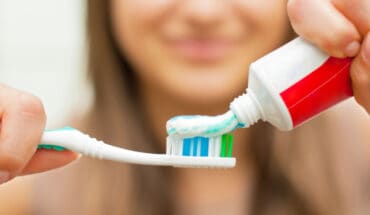Getting to the root of hair loss: Leading trichologist, Eva Proudman FIT IAT helps patients get to the root of hair loss and explains the role that stress can play in this upsetting condition.
“Hair loss and thinning can be so hard to come to terms with, explains Eva. “The hair on our head can be a defining part of our identity – and if start to lose your hair, it can feel as if you’re losing part of your identity.
“And, there’s little doubt about the link between stress and hair loss. Our body is very clever and is essentially a complex network of systems that communicate and rarely operate in isolation. As such, stress and anxiety in our daily lives can really compromise our physical wellbeing due to myriad factors from a lack of sleep or poor diet to a change in hormonal responses and an increase in inflammation.
“Many of the patients I see presenting with hair loss or thinning will report ‘feeling stressed’– so a ‘starting point’ and crucial part of a recommended treatment plan is to help with stress management. However, often a hair or scalp problem will in turn cause an increase in stress which will then perpetuate the situation.
“Stress might also lead to changes in diet; many people skip meals or opt for easy comfort food that can lead to a depletion in stored vitamin and mineral levels which can trigger hair loss.
“Prolonged periods of stress can also cause an increase in the hormone cortisol, putting our bodies into survival mode where priority is given to every essential body cell. The hair is non-essential and this is another way that stress can cause hair loss. Stress often causes a rise in inflammation within our bodies which can trigger many different responses not least a malfunction in the autoimmune system, which again can lead to hair loss.”
Eva adds; “It’s important to understand that there are different types of hair loss that can occur from stress and all with slightly different mechanisms underlying each condition.”
Telogen Effluvium:
One of the most common types of hair loss is telogen effluvium, which is a widespread loss of hair from the scalp. Patients might be aware of more hair in the sink / ‘plug hole’ after washing it, and falling out when brushing.
This condition is basically a disruption to the normal growing and shedding cycle of the hair. In simple terms, stress can cause the growing phase of the hair to become shorter, with more hair moving into the resting and shedding phases which increases the amount of hair ‘fall’.
On a positive note, telogen effluvium does not normally equate to permanent hair loss and if a trichologist can identify the underlying causative factors, we can treat it very effectively and the loss of hair density can be recovered.
Alopecia Areata:
This is where the autoimmune system attacks the hair ‘by mistake’, causing patches of loss to appear on the scalp. Generally the patches are circular in shape and the size of a coin, although they can be larger too. This type of alopecia is not permanent and the hair can recover and regrow. It is not fully understood what the triggers are for Alopecia Areata, however there is a clear association with stress, shock, bereavement, illness or accidents – and an increase in underlying inflammation, which again can be caused by raised stress levels.
Frontal Fibrosing Alopecia:
This is a type of alopecia that attacks the pilosebaceous unit, (the growing unit of the hair), causing the hairline to recede and can cause recession and loss right back to the crown.
This condition is called a scarring condition as we cannot recover the hair once it is lost. Stress is again recognised as a trigger in this condition and there is always an increase in underlying inflammation.
Trichotillomania:
The treatment for this psychological condition is complex and requires specialist management to treat successfully. Also known as hair pulling disorder, the sufferer has an irresistible urge to pull out their hair from the scalp and sometime other areas of the body too. Stress (as well as anxiety, depression, and major traumatic life experiences) is a major contributing factor in this type of hair loss.
Androgenic Alopecia:
Commonly known as male or female pattern hair thinning, this is a genetic condition and can be inherited from either parent. This condition is caused by a sensitivity in hair follicles to both testosterone and a hormone converted from testosterone called dihydrotestosterone, (DHT) and can be triggered at various stages in life starting as early as puberty and as late as perimenopause.
In this condition, the hair follicles miniaturise causing the hair to become thinner and finer until it is lost completely. Stress and anxiety can really intensity this type of hair loss with the reason being an increased production of cortisol, (aka, the stress hormone). Cortisol can raise the level of testosterone in our bodies and can also increase the sensitivity of the follicles to the circulating testosterone.
“And”, says Eva, “let’s not forget scalp heath! Stress is a well-known trigger in causing conditions such as seborrheic dermatitis and Psoriasis to flare up.
“But, can stress-related hair loss be ever be reversed? Well, the good news is, “yes” – although it would be too easy and dismissive to say to patients, “just manage your stress levels”.
“As trichologists, we’re trained in providing an holistic approach that involves a range of therapies and lifestyle modifications, specialist supplementation (once any dietary deficiencies have been identified) and topical treatments and innovative treatments such as laser therapy. We can also provide specialist scalp treatments to relieve scaly, itchy conditions, that work alongside antibiotic and steroid treatments from a GP or dermatologist.”
A number of charities, such as Alopecia UK, also host support groups and online forums where you can talk to others who are experiencing hair loss.
For more information and advice, please visit: www.ukhairconsultants.com
- Shake-up of services needed to ease fibromyalgia pain - 9th December 2025
- Continuous glucose monitoring reduces risk of excessive birth weight - 9th December 2025
- Significant mental health benefits of adult-worn slings - 9th December 2025







